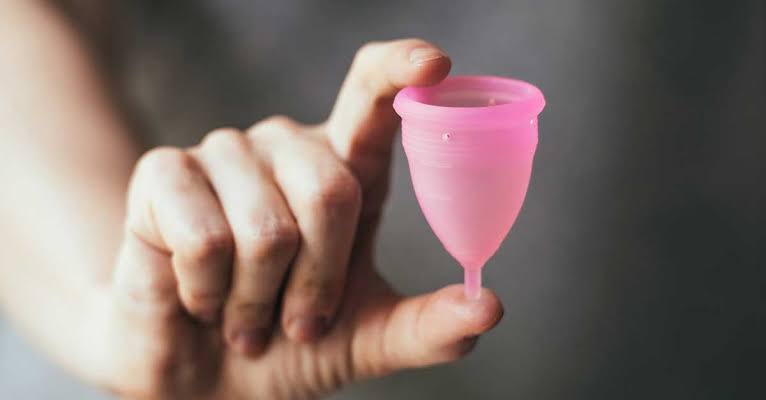Powerful Environmental Reasons To Switch To A Menstrual Cup

2024-02-26 08:24:34
Powerful Environmental Reasons To Switch To A Menstrual Cup
Most of us have grown accustomed to the conventional ways of managing our period: pads and tampons.
Some pick a side; some mix it up depending on the time of the day and sometimes we use both.
However, in recent years, companies have been creating category innovations and created modern, discreet and eco-friendly alternatives to the options we have known all our lives, and we are quite excited about the healthier and more environmentally friendly options!
Today, there are several environmentally friendly period products available such as reusable pads, reusable tampon applicators, period underwear and menstrual cups.
And perhaps it is more relevant today to think about the impact our periods have on the environment than ever before.
An individual goes through approximately 11,000 disposable pads and/or tampons in a lifetime.
Multiply that number by everyone on this planet that gets his or her period and that equals a substantial amount of waste.
While the actual products contribute largely to the problem, we should also take the life-cycle of the products into consideration.
First of all, we have the raw material extraction, which involves the production of cotton (a very water intensive process; cotton is considered the world’s “thirstiest crop,” requiring six pints of water to grow just one little bud) and most use non-organic cotton, which has been saturated in pesticides and insecticides.
Secondly, most pads contain polyethylene plastic (the adhesive that’s used to make the pad stick to your underwear), which is an environmentally harmful pollutant.
Most tampons contain chemicals such as dioxin, chlorine and rayon. While the products sit in landfills, these chemicals get soaked up by the earth and are released as pollution into groundwater and air.
We don’t think any of the above substances should get anywhere near the most sensitive area on our body.
But, if not for your health, perhaps you should consider switching to a more eco-friendly period product for the environment’s sake.
It’s hard to say, if your personal, period-related waste is worth fretting over in the grand scheme of things… But one thing is for sure, switching to an eco-friendly menstrual product means you won’t contribute to overflowing the landfills with period products; in the US alone 12 billion pads and 7 million tampons pollute landfills annually.
FACTS ABOUT THE ENVIRONMENTAL IMPACT OF PERIOD PRODUCTS
Tampons, pads and panty liners along with their packaging and individual wrapping generate more than 200,000 tonnes of waste per year, and they all contain plastic – in fact, pads are around 90% plastic!
The average user throws away an astonishing 125 to 150kg of tampons, pads and applicators in their lifetime.
Plastic waste ends up in a landfill or, even worse in the oceans, rivers and beaches.
In 2010, a UK beach clean found an average of 23 sanitary pads and 9 tampon applicators per kilometre of British coastline.
The time it takes for a tampon or pad to degrade in a landfill is centuries longer than the lifespan of the individual who used it – particularly when it’s wrapped in plastic.
In addition to that, the process of manufacturing these products – turning wood into soft, cotton-like fibres – is both resource- and chemical-intensive.
In the UK, two billion period products are flushed down the toilet a year—which is responsible for 75% of all cases of blocked drains.
It results in removal costs of £14 billion each year. Along with cotton buds, tampons, applicators and panty liners make up 7.3 % of items flushed down the toilet in the UK.
A year’s worth of disposable period products leave a carbon footprint of 5.3 kg CO2 equivalents.
MENSTRUAL CUP FROM ORGANICUP – A GREENER ALTERNATIVE
Unlike disposable period products, the OrganiCup is reusable for years and it has a minimal impact on the environment compared to tampons and pads.The lifespan of the cup means potentially saving the environment for the packaging and material waste of more than 2400 pads or tampons per user.To put that into context, one OrganiCup will save the environment for one truckload of waste in 10 years for every single person who switches to a cup.That’s quite an environmentally friendly solution compared to the conventional alternatives that exist on the market today.
Are menstrual cups as eco-friendly as claimed?
According to Dr Michael Brook, a silicone expert at McMaster University, menstrual cups are in fact a greener alternative.Silicone is a pretty green ingredient. The material is derived from silica, a type of sand, and as it degrades, it will slowly go back to its original state; the second most abundant mineral in the Earth’s crust and one that isn’t hazardous to the environment.
Article Reproduced From: https://www.organicup.com/blog/powerful-environmental-reasons-to-switch-to-a-menstrual-cup/




